In rural India, where agriculture remains the backbone of the economy, the struggles of farmers are often compounded by outdated practices and lack of access to modern knowledge and technology. Yet, in the heart of Jharkhand, a revolution is underway, driven by the indomitable spirit of women farmers whose stories of perseverance and success are now garnering attention beyond the borders of their villages.
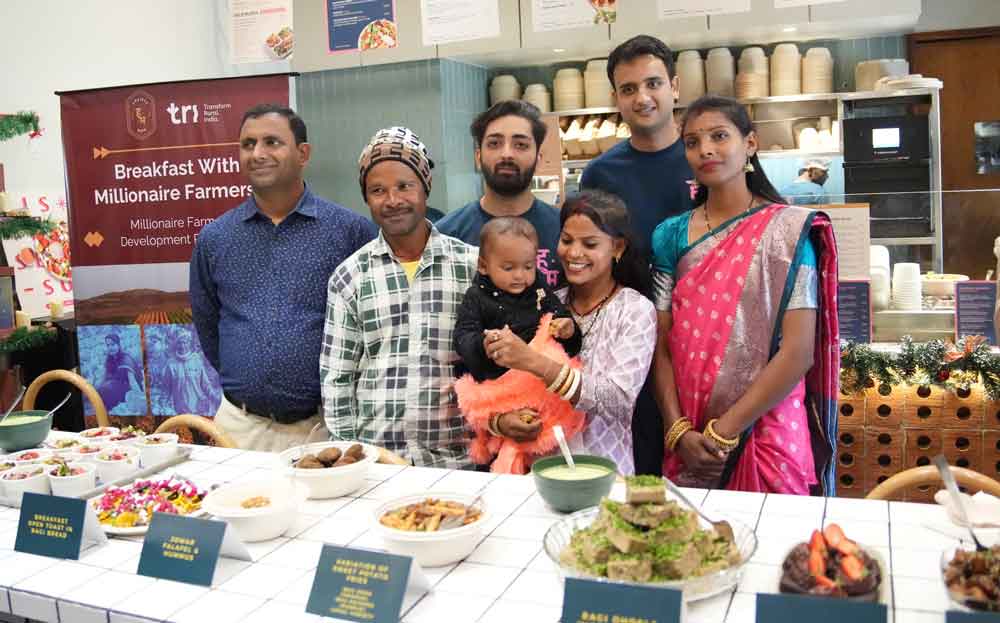
As part of the Millionaire Farmers Development Programme (MFDP), initiated by Transform Rural India (TRI), these farmers are not only transforming their own lives but also the livelihoods of entire communities. The programme, which aims to empower farmers through modern farming techniques, has helped numerous individuals, especially women, break free from the cycle of poverty and build sustainable, profitable farming enterprises. The recent ‘Breakfast with Millionaire Farmers’ event, held at Project Hum in Bandra, Mumbai, served as a vibrant celebration of their achievements, showcasing the bountiful produce harvested by these resilient farmers.
Among the inspiring stories shared at the event were those of Pinki Kumari, Nikki Kumari, and Haricharan Oraon—three farmers from Jharkhand whose lives have been transformed through their involvement in the MFDP. Their journeys reflect the power of education, modern farming techniques, and most importantly, the relentless drive of women in rural India to uplift their families and communities.
Pinki Kumari: From Financial Instability to Prosperity
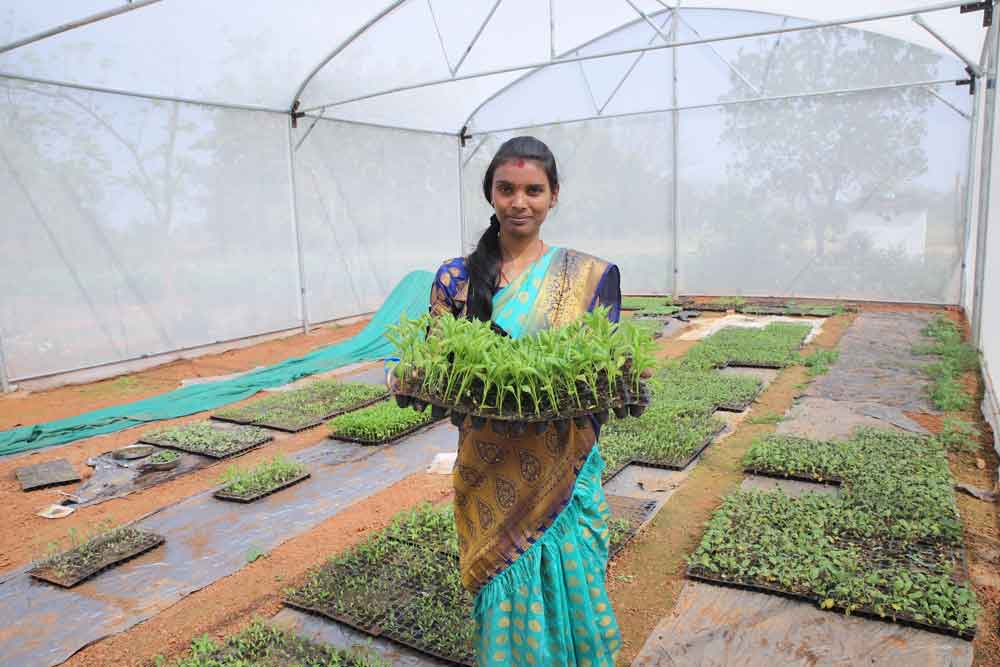
Pinki Kumari, a 26-year-old from Fadilmarcha village, epitomises the change brought about by the MFDP. A former aspirant to join the police force, Pinki’s journey into farming was not planned. Faced with mounting debts and no sustainable income source, she turned to TRI for help.
“At first, I had no idea that farming could be so profitable,” Pinki says. “The training I received changed everything. I learned modern techniques like grafting, drip irrigation, and mixed cropping, which helped increase my yields significantly.”
Before joining the programme, Pinki and her family struggled with traditional farming methods. Their annual income barely covered basic expenses. However, after applying the knowledge from TRI, Pinki’s income skyrocketed, reaching an impressive Rs 13,24,000 in a single year. Today, she is a beacon of hope in her village, where she is not only a successful farmer but also an educator who teaches other farmers how to adopt modern farming practices. “The knowledge I gained allowed me to clear all my debts in just over a year. I even leased more land to grow more crops,” she says proudly.
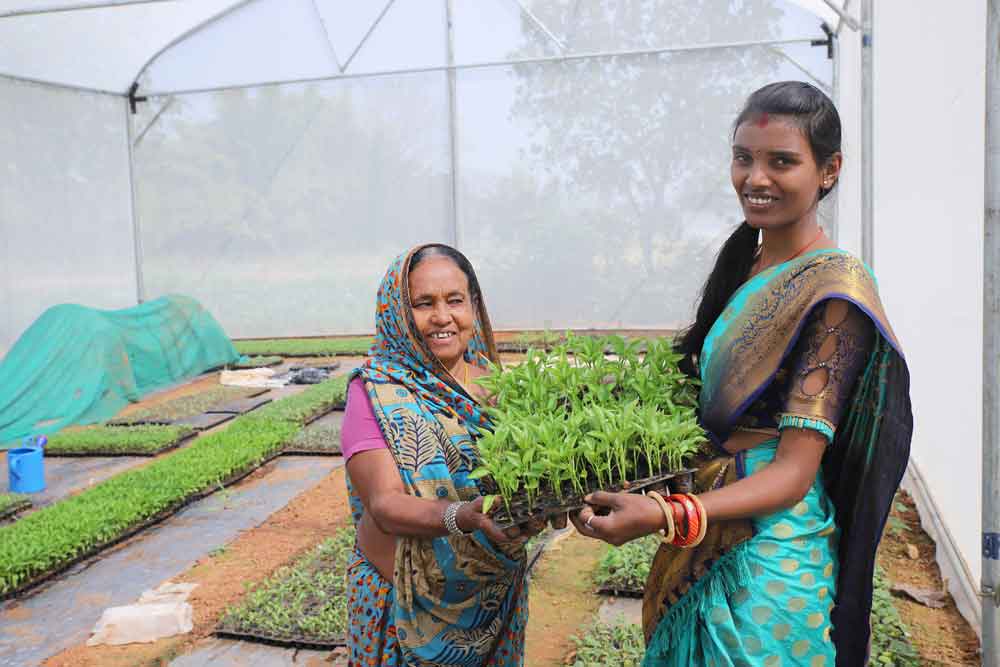
Pinki’s success has also had a ripple effect. Other farmers in her village now come to her to buy saplings and seek guidance. “There is always a difference between farming and doing farming right,” she explains. “That’s what I realised, and now I share this with others.”
Bapi Gorai, representative from TRI, spoke about Pinki’s impact, "Pinki is the embodiment of what we want to achieve. Her transformation is not just personal—it’s communal. She’s the kind of leader we aim to nurture through our programme, someone who can lift others as she rises."
Nikki Kumari: Pioneering Change and Securing a Better Future
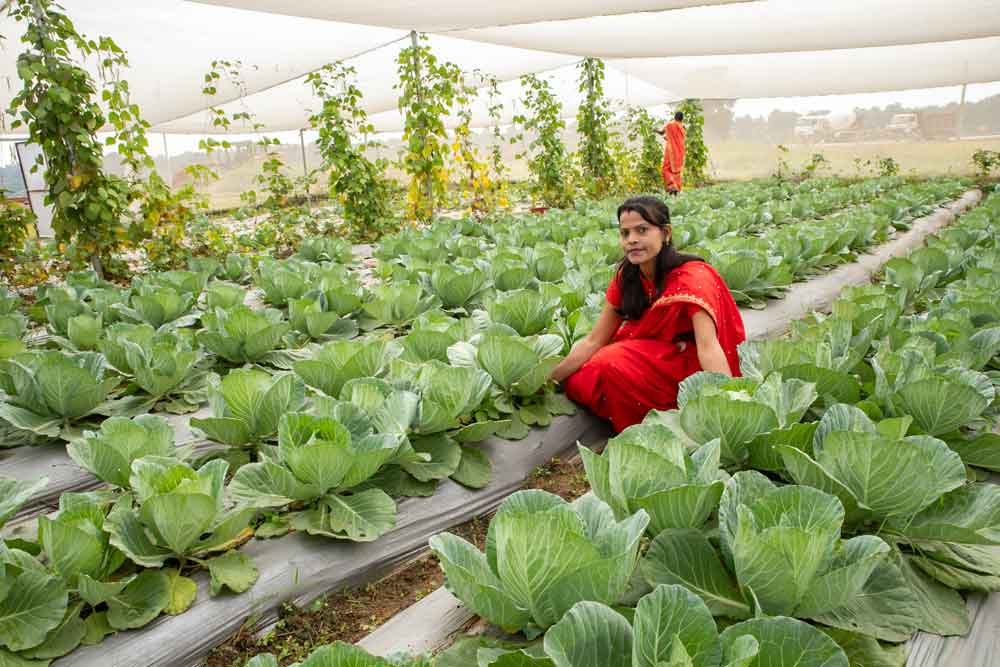
Similarly, Nikki Kumari’s journey from struggling with traditional farming to becoming a millionaire farmer is a testament to the power of technology and modernisation. Living in Purana Pani village, Nikki had access to six to seven acres of cultivable land but lacked the knowledge to maximise its potential. She was unaware of various government schemes and had limited access to modern farming techniques. As a result, she earned only about Rs 3 lakh annually, which was barely enough to sustain her family.
After enrolling in the MFDP, Nikki attended training sessions where she learnt about season crop planning, drip irrigation, and advanced farming techniques like multi-tier farming, protected cultivation, and grafting for vegetables. “TRI gave me the knowledge to optimise my farming practices,” Nikki recalls. “I also accessed government schemes that helped me install a solar lift irrigation system, which drastically improved my crop yield.”

Nikki’s income has grown exponentially, reaching Rs 12-13 lakh annually. With her newfound financial stability, she has been able to build a new house for her family and send her children to a private school. “I’m proud that my family is now financially secure, and my children have a better future ahead,” she says. Nikki’s success has inspired other farmers in her community to adopt modern farming practices, contributing to the overall prosperity of her village.
What made Nikki’s presence at the event even more symbolic was her one-year-old son, whom she brought along. “Women, no matter where they come from, have multiple roles to fulfil,” Nikki shared. “Farming, motherhood, and teaching others—all of these are part of who I am.”
Haricharan Oraon: A Vision for Organic Farming
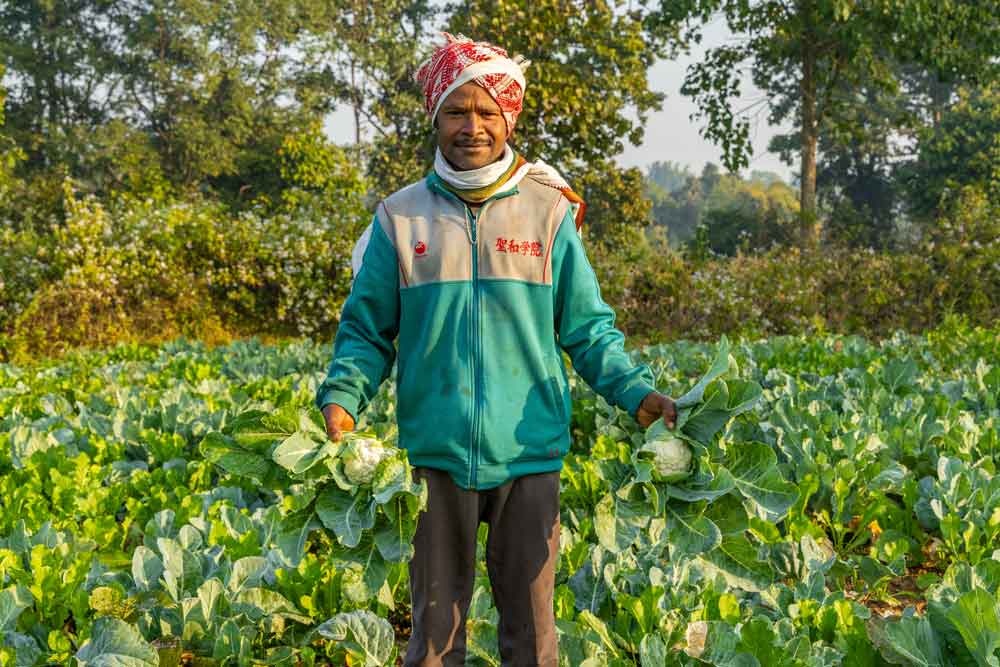
Haricharan Oraon’s journey highlights the power of combining modern techniques with sustainable, organic farming practices. Having worked as a daily wage labourer on farms in Punjab, Haricharan returned to his native village in Jharkhand with a desire to make his land productive. “I had no idea about the technologies and methods that could help me grow more,” Haricharan says. “When I connected with TRI, they introduced me to advanced farming techniques, including net houses and better distribution channels. The impact on my income was immediate.”
Haricharan’s dedication to sustainable farming led him to adopt organic practices, which not only improved his crop yield but also enhanced the health of his community. “Since our village adopted organic farming, we have seen a noticeable drop in illnesses. The quality of our produce has improved, and we are selling fresher, unadulterated crops to the market,” Haricharan explains.
Today, Haricharan’s success is reflected in his thriving farm, where he earns Rs 4-5 lakh per season from just five acres of land. His story has become an inspiration to other farmers in his village, many of whom have followed suit by adopting organic farming methods.
Gorai acknowledges the challenges with organic farming. “While organic farming is more sustainable in the long run, it requires patience, meticulous planning, and significant effort to ensure quality and yield,” he said. “Farmers like Haricharan are proving that the effort is worthwhile, but we need more systemic support to make organic farming viable at scale.”
The Impact of the Millionaire Farmers Development Programme
The stories of Pinki, Nikki, and Haricharan are just a few examples of how the MFDP is transforming the lives of farmers, particularly women, who often face greater challenges in rural communities. Through TRI’s support, farmers are gaining access to modern techniques, government schemes, and market opportunities that enable them to grow more, earn more, and sustain their livelihoods for the long term.
Gorai, emphasises the broader impact of their work, "Our efforts with women and rural communities have created opportunities to transform rural India. Rural women begin to believe that a better life is possible and become more involved in decision-making. The impact is evident in reduced poverty, stable incomes, improved health and education, the emergence of agri-entrepreneurs, and increased rural employment. This transformation lasts from one generation to the next, making it truly regenerative."
Under the programme, TRI has reached over 66,958 households, promoted more than 176 agri-entrepreneurs, and supported over 58 farmers in achieving millionaire status. "The numbers tell a story of systemic change," Bapi added. "This isn’t just about helping individuals, it’s about empowering entire communities to thrive."
Raghav Simha, co-founder of Project Hum shared, “Female farmers often work over eight hours a day, in addition to managing unpaid labor at home as homemakers. Their passion for their work is truly inspiring. When women succeed, entire families and villages prosper."
The ‘Breakfast with Millionaire Farmers’ event was a celebration of these successes, with farmers like Pinki, Nikki, and Haricharan sharing their stories and showcasing the fruits of their labour. As the event highlighted, supporting local farmers and promoting sustainable practices not only benefits the farmers themselves but also contributes to the broader goal of food security and environmental sustainability. Simha emphasised that from the very beginning of Project Hum, him and the team recognised the importance of connecting directly with people on the ground and learning from the farmers themselves. “They work tirelessly, gaining knowledge and skills to contribute meaningfully to the betterment of society. For me, it is essential that the produce we offer reflects the quality and dedication of their hard work.”
The transformative power of modern farming techniques, coupled with the dedication and hard work of farmers, especially women, is reshaping the agricultural landscape of the country. The MFDP is not just about increasing yields, it is about empowering farmers, especially women, to take control of their futures and build prosperous, sustainable livelihoods. As more farmers join the movement, the hope is that this model will inspire others across India, proving that with the right knowledge, support, and dedication, the future of farming is indeed bright.